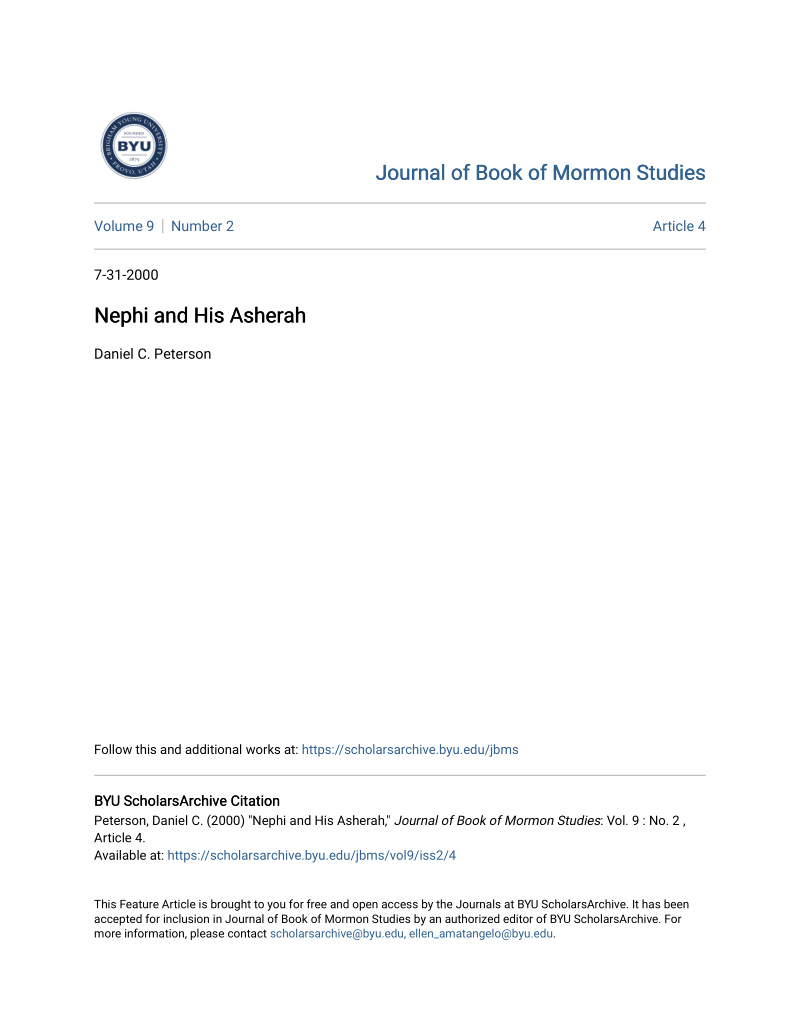Daniel C. Peterson theorizes that Asherah should be understood as a Mother goddess archetype.
- Type
- Academic / Technical Report
- Hearsay
- DirectSecondary
- Reference
Daniel C. Peterson, "Nephi and His Asherah," Journal of Book of Mormon Studies, (September 2, 2000), 16-25, 80-81
- Scribe/Publisher
- Journal of Book of Mormon Studies
- Audience
- Reading Public
- Transcription
Asherah was the chief goddess of the Canaanites. She was El’s wife and the mother and wet nurse of the other gods. At least some Israelites worshipped her over a period from the conquest of Canaan in the second millennium before Christ to the fall of Jerusalem in 586 BC (the time of Lehi’s departure with his family). Asherah was associated with trees—sacred trees. The rabbinic authors of the Jewish Mishna (second–third century AD) explain the asherah as a tree that was worshipped. In 1 Nephi 11, Nephi considers the meaning of the tree of life as he sees it in vision. In answer, he receives a vision of “a virgin, . . . the mother of the Son of God, after the manner of the flesh.” The answer to his question about the meaning of the tree lies in the virgin mother with her child. The virgin is the tree in some sense and Nephi accepted this as an answer to his question. As an Israelite living at the end of the seventh century and during the early sixth century before Christ, he recognized an answer to his question about a marvelous tree in the otherwise unexplained image of a virginal mother and her divine child—not that what he saw and how he interpreted those things were perfectly obvious. What he “read” from the symbolic vision was culturally colored. Nephi’s vision reflects a meaning of the “sacred tree” that is unique to the ancient Near East. Asherah is also associated with biblical wisdom literature. Wisdom, a female, appears as the wife of God and represents life.
- Citations in Mormonr Qnas
The B. H. Roberts Foundation is not owned by, operated by, or affiliated with the Church of Jesus Christ of Latter-day Saints.

